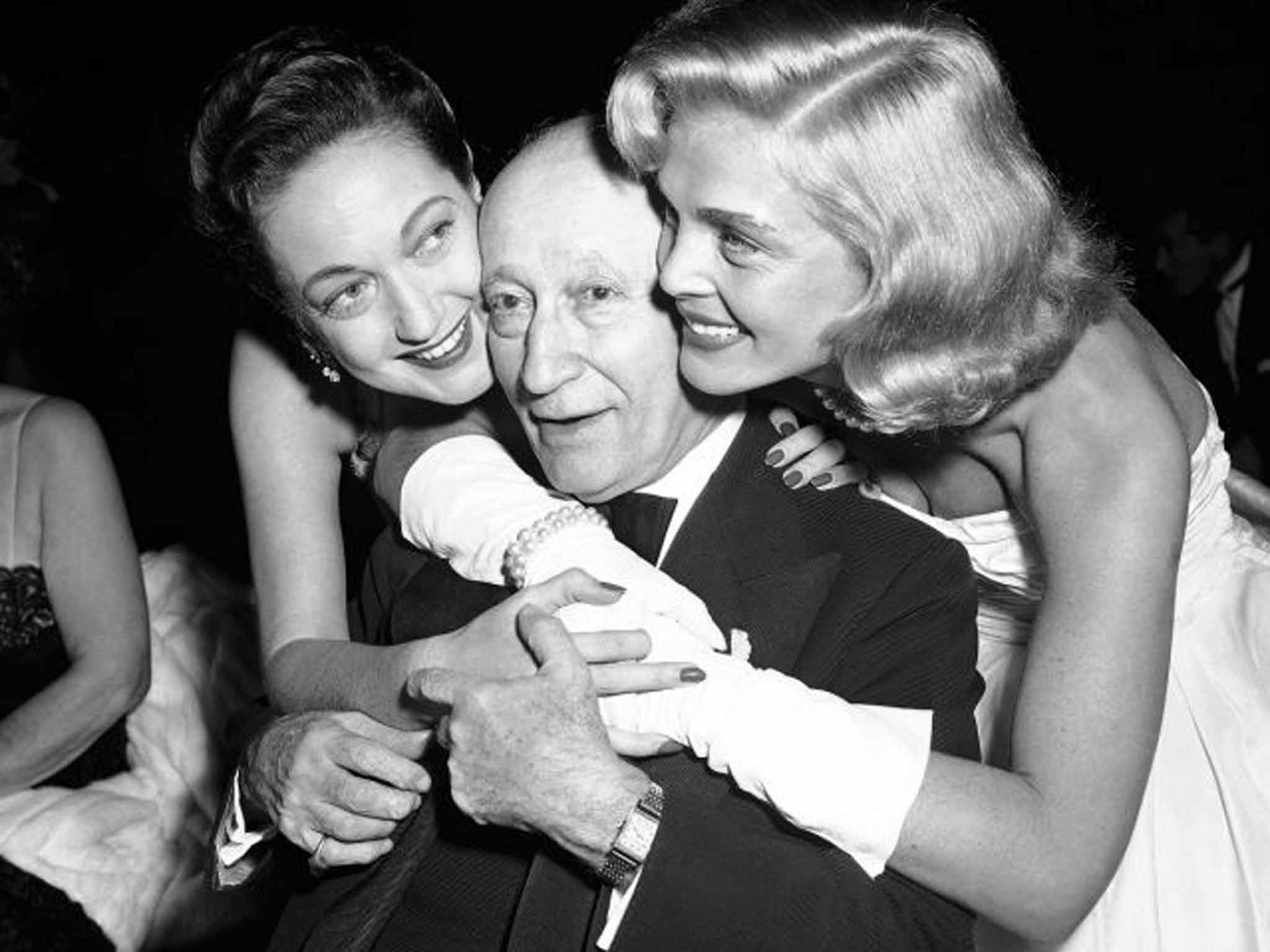Lizabeth Scott: 'The Queen of Film Noir' who played the femme fatale opposite Bogart, Mitchum, Douglas, Lancaster and Powell
Scott exuded allure but also elements of danger and hints of double-dealing

Lizabeth Scott's deep, throaty voice and sensuous good looks helped her reign as a queen of film noir in the 1940s and 1950s. Of the nearly two dozen films in which she appeared, she was the female lead in most of them.
Film noir suited Scott well because it touched, she observed, on "the psychological, emotional things that people feel and people do. It was a new realm, and it was very exciting, because suddenly you were coming closer and closer to reality. What you call 'film noir' I call psychological drama. It showed all these facets of human experience and conflict – that these women could be involved with their heart and yet could think with their minds."
A sultry blend of shimmering blonde locks and husky enunciation, Scott exuded allure but also elements of danger and hints of double-dealing. At a time when studio publicists gave descriptive nicknames to young actresses, Scott was known as "The Threat", following one critic's verdict that "She's the Threat, to the Body [Marie McDonald], the Voice [Frank Sinatra] and the Look [Lauren Bacall]."
The disparity between her appearance and the inner nature of her characters was perhaps summarised best by a line spoken by Burt Lancaster in the 1948 film I Walk Alone. "What a fall guy I am," he tells her, "thinking just because you're good to look at, you'd be good all the way through!"
She also played opposite the likes of Humphrey Bogart, Robert Mitchum and Kirk Douglas, and shared equal billing with Mary Astor, Jane Greer and Barbara Stanwyck. Early in her career she appeared with the latter in The Strange Love of Martha Ivers (1946), starred with Bogart in Dead Reckoning (1947) and played opposite another star of her era, John Hodiak, in Desert Fury (1947).
She was born Emma Matzo in 1922, in Scranton, Pennsylvania, where her father owned a shop. Scott described herself as "rebellious and outspoken" as a young girl, despite her mother telling her to subdue her emotions and "be a lady." Asked what was the best advice she was given, Scott replied, "I don't know, but I sure didn't take it." She studied music before moving to New York after high school.
She won a spot in a touring company of the comedy revue Hellzapoppin and in 1942 she was signed as Tallulah Bankhead's understudy in Thornton Wilder's play The Skin of Our Teeth on Broadway, later taking over from Miriam Hopkins in a touring production. She began using the stage name Elizabeth Scott after reading Maxwell Anderson's Mary of Scotland, a play about Mary, Queen of Scots and Elizabeth I, and she soon dropped the initial "E" – "I decided I needed to make the name more of an attention-grabber".
She met the Hollywood producer Hal Wallis and made her way westwards, signing a contract with Paramount Studios. Wallis cast her opposite Robert Cummings in the 1945 romance You Came Along, her performance convincing him to use her in a succession of noir roles. Her first recognised film noir appearance came the following year in The Strange Love of Martha Ivers, with Stanwyck, Van Heflin, and Kirk Douglas making his screen debut in a portrayal of corruption and moral decay among members of officialdom and the upper class.
In 1947 she starred with Bogart in the noir classic Dead Reckoning, playing a femme fatale who attempts to foil Bogart's investigation into an Army friend's mysterious death. Bogart later said she was one of the "most potent" kissers he appeared with on film. In Desert Fury (1947), Scott was cast as a student expelled from boarding school who returns to her Nevada home town, where her mother runs a bordello.
After I Walk Alone, in which she played a nightclub singer (Scott was billed by the studio as "the blonde with the brown voice"), Scott appeared in Pitfall (1948) with Dick Powell, Easy Living (1949) and Too Late for Tears (1949), playing a woman who kills her husband in order not to relinquish an ill-gotten fortune. In 1951 she starred opposite Robert Mitchum in The Racket, in which she played a torch singer romantically caught between a police officer and a gangster.
As the film noir era drew to a close she appeared in the 1953 comedy Scared Stiff with Dean Martin and Jerry Lewis. Her career conclusively unravelled thanks to a 1954 article in Confidential magazine which alleged that Scott was part of Hollywood lesbian set. She sued the magazine for $2.5 million, claiming that it portrayed her in a "vicious, slanderous and indecent" manner. But the 1957 trial ended without a verdict, and the scandal took its toll on her career. She appeared in Loving You with Elvis Presley in 1957, had roles in a couple of TV series in the 1960s and was cast in one final film, in 1972 alongside Michael Caine and Mickey Rooney, in Mike Hodges' Pulp, a noir pastiche.
In 1960, Scott appeared in an episode called "The Amazon" of the TV series Adventures in Paradise. A boyfriend in the episode described her in lines that seemed to capture the role she played in many films: "She's a sleek, well-groomed tigress, a man-eating shark – an Amazon! She chews men up and spits them out." It was an accurate summation of the kind of role that had made her famous.
Emma Matzo (Lizabeth Scott), actress: born Scranton, Pennsylvania 29 September 1922; died Los Angeles 31 January 2015.
© The Washington Post
Subscribe to Independent Premium to bookmark this article
Want to bookmark your favourite articles and stories to read or reference later? Start your Independent Premium subscription today.

Join our commenting forum
Join thought-provoking conversations, follow other Independent readers and see their replies